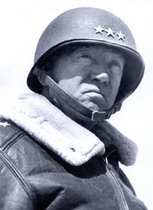Because the Legislature Said So
This commentary was written by Attorney Steve Dulan and featured in the Michigan Coalition for Responsible Gun Owner's newsletter. It's worth a read.
In a departure from our normal format, I'd like to discuss the recurring issue of the "why" behind firearms laws that comes up in so many of your questions that are submitted via the website. It is very common for a citizen to learn about some specific Michigan or U.S. statute that has to do with the regulation of firearms (sometimes the hard way) and then ask the question "Why is this the law?" The short answer that runs through my mind is a paraphrase of something that has probably been repeated by every generation of parents since humans invented language: "Because the legislature said so."
As the professor who teaches firearms law at the largest law school in the United States, and as someone who is often given the opportunity to discuss proposed laws with legislators and their staffs, I know that the real answer is more complex. Those of us who study law are often struck by the fact that most laws are basically responses to times in history when someone did something stupid or evil.
The history of gun law is no different. Someone does something horrible and a legislature reacts. The press essentially operates as a 4th branch of government by shaping public opinion, which in turn shapes voter behavior. Our elected representatives must respond to the will of the people, or find themselves looking for alternate employment.
For example., the first gun control law in the United States, the National Firearms Act of 1934 was passed soon after the repeal of prohibition, which had led to the rise of Al Capone and other famous gangsters, many of whom used "Tommy Guns" in the commission of famous crimes such as the St. Valentine's Day Massacre in the 1920's. Coinciding with the debate in Congress preceding the NFA, there was a second wave of "organized crime" including famous names such as: John Dillinger, Pretty Boy Floyd, Baby Face Nelson and Bonnie and Clyde. All of whom were killed during 1934 by agents of Mr. Hoover's new FBI.
The National Firearms Act created a tax of $200 on machine guns, silencers, and, short-barreled shotguns and rifles. (The law was framed as a tax act due to the complex relationship between the federal government and the States under our Constitution.) By the time the law was passed, prohibition had been repealed, Capone was in prison, showing the early signs of dementia brought on by syphilis, and the infamous bank robbers of the early 1930's were mostly dead, and the FBI had become a fairly effective, modern force in the war on crime. In other words, by the time the law responded to the perceived need, it was essentially obsolete. It is still in place, and machine guns and sound moderators are still stigmatized and prohibited outright in some states.
Many of the laws currently on the books in Michigan were similarly the result of previous legislatures responding to perceived threats, news accounts, or specific tragedies. In our democracy, the law is the result of debate, bargaining, and negotiation between legislators. As we're all aware, there will always be some legislators who are opposed to private ownership of guns. They either honestly (and erroneously) believe that taking away our gun rights will make us more safe, or, they are simply pandering to public opinion in an effort to appear to be doing something about public safety. The result is often bad law. Some of that law is still on the books. In fact, until recently, gun control law was a one-way ratchet that only took away rights, never moving towards freedom and common sense, only away from it.
The MCRGO has been on the front lines of the turn-around. We can be proud of the fact that the pendulum of law is swinging back toward common sense due to the efforts of the members and leadership of the MCRGO. The entire organization is working daily toward tying up the loose ends that still exist, some of them very significant. But, keep in mind that our success depends on electing the right legislators and county prosecutors and on being successful in debate and in court. Interest groups like ours, and legislators, must constantly prioritize and remember that politics is the art of the possible and that law-making is an imperfect process that sometimes results in an imperfect product. So, ultimately, the answer to the question of "why" a particular law is on the books does boil down to: "Because the legislature said so."
Steven W. Dulan, J.D. is a member of the Bar in Michigan and Colorado, a member of the Board of Directors of the Michigan Coalition for Responsible Gun Owners, an NRA Life Member, a former US Army Infantry Sergeant, a volunteer pre-deployment trainer of Squad Designated Marksmen for the Army Marksmanship Unit (AMU), Professor of Firearms Law at The Thomas M. Cooley Law School and Honor Graduate of the III Corps Armorer's School at Fort Hood, TX.





|